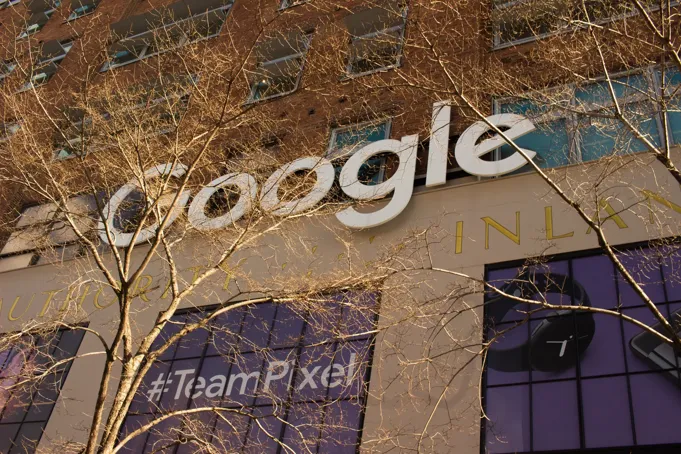Overview
Google, the tech giant synonymous with internet search, is facing intense antitrust scrutiny from U.S. regulators over its dominant position in the digital advertising market. This latest probe focuses on whether Google has leveraged its market power to unfairly dominate the digital ad space, stifling competition and innovation in the process. The outcome of this investigation could have significant implications for the tech industry and the future of digital advertising.
The Core of the Investigation
The U.S. Department of Justice (DOJ), along with multiple state attorneys general, is investigating Google's advertising practices. Central to the inquiry is whether Google has used its leading position to create a monopoly over the digital ad ecosystem. This ecosystem spans from the technology that helps publishers sell ad space to the tools advertisers use to buy and place ads.
Key Areas of Focus:
Ad Technology Stack: Google owns and operates significant parts of the ad tech stack, including platforms like Google Ads, Google Ad Manager, and AdSense. Regulators are examining whether Google’s control over these platforms allows it to unfairly steer business to its own services while disadvantaging competitors.
Market Share and Pricing Power: With Google controlling a substantial share of the digital ad market, the DOJ is investigating if this dominance allows the company to manipulate market conditions, including ad pricing and the distribution of ad revenues.
Self-Preferencing: There are concerns that Google might be prioritizing its own ad services over those of competitors in search results and ad auctions, effectively reducing the visibility and competitiveness of rival ad technologies.
Background of Google's Dominance
Google’s journey to the top of the digital advertising world began with its search engine, which became a crucial platform for advertisers seeking to reach vast online audiences. Over time, Google expanded its reach through strategic acquisitions and innovations, integrating vertically across the advertising supply chain.
Notable Developments:
DoubleClick Acquisition (2008): Google’s $3.1 billion purchase of DoubleClick significantly boosted its ad-serving capabilities, enabling it to control more of the online advertising process from ad creation to placement.
AdMob Acquisition (2009): This $750 million acquisition gave Google a strong foothold in the mobile ad market, expanding its dominance as mobile internet usage surged.
YouTube Monetization: By integrating YouTube into its ad network, Google capitalized on the platform’s massive user base, driving further growth in video advertising.
These moves have helped Google command more than 28.6% of the global digital ad revenue, a significant lead over its nearest competitors.
Implications for Competition and Innovation
Critics argue that Google’s practices have created barriers for smaller ad tech firms and stifled innovation. For instance, competitors claim that Google's control over both the buy-side and sell-side of the market creates conflicts of interest, as Google can set rules that benefit its own services.
Additionally, there are concerns about transparency. Advertisers and publishers have raised issues regarding the lack of clarity in how Google’s ad auctions are conducted and how revenues are distributed. This opacity can disadvantage smaller players who cannot compete on the same scale or lack the resources to navigate Google’s complex ad ecosystem.
Google’s Defense
In response to the scrutiny, Google has consistently argued that its advertising practices benefit consumers and businesses alike. The company asserts that its platforms increase efficiency and lower costs for advertisers and publishers. Google also points to the competitive nature of the ad market, highlighting the presence of major players like Facebook (Meta), Amazon, and emerging ad tech companies as evidence of robust competition.
Dan Taylor, Google's Vice President of Global Ads, recently stated, "Google’s ad tools are designed to help businesses of all sizes grow and reach customers effectively. We compete in a highly dynamic and competitive market that is rapidly evolving with new players and technologies".
Potential Outcomes of the Investigation
The investigation could lead to a range of outcomes, each with significant implications for Google and the broader digital ad market:
Regulatory Reforms: Regulators might push for new rules to ensure greater transparency and fairness in digital advertising. This could include measures to prevent self-preferencing and to enhance transparency in ad auctions and revenue distribution.
Divestitures: In a more extreme scenario, the DOJ could pursue actions that force Google to divest parts of its ad business. This would aim to break up its integrated ad stack to foster more competition.
Fines and Penalties: Google could face substantial financial penalties if found guilty of antitrust violations, similar to the hefty fines it has faced from European regulators in the past.
Broader Impact on the Tech Industry
The outcome of the investigation will be closely watched by other tech giants, many of which also hold significant market power in various domains. A ruling against Google could set a precedent for how antitrust laws are applied in the digital age, potentially leading to more stringent regulations across the tech sector.
For the digital advertising industry, increased regulation or a breakup of Google’s ad operations could open the door for more competition, potentially leading to more innovation and better services for advertisers and publishers.
Conclusion
As the U.S. antitrust investigation into Google’s ad business intensifies, the spotlight is on how the tech giant’s practices shape the digital advertising landscape. The stakes are high for Google, advertisers, and consumers alike. The outcome of this probe could redefine market dynamics and set new standards for competition and fairness in the digital economy.
References:
- Voice of America: Google Faces Antitrust Scrutiny Over Ad Business
- The Wall Street Journal: Justice Department’s Antitrust Suit Against Google
- Reuters: Google's Dominance in Digital Ads Under Scrutiny
- Bloomberg: Google's Antitrust Battle: The Stakes and the Players
- TechCrunch: How Google's Ad Monopoly Is Shaping the Digital Market





